This post contains affiliate links. Please see our disclosure policy.

How to Bounce Back After a Season of Less Healthy Eating + Stay Motivated With a Healthy Lifestyle
With it being the end of summer (already!), you may be coming off of a busy season that is different from your regular routine. Maybe you went on vacation, had multiple outings with the kids or whole family, or attended social gatherings (or perhaps there was a combination of everything!).
Some of us might feel like we’ve had a few “bad” days, “bad” weeks, or maybe even a “bad” entire summer when it comes to our eating habits. As a result, you may be eager to “get back on track” with healthy eating so you can support both your health and waistline.
If you’re relating at all to this, then I promise you’re in good company. Read on for tips on bouncing back after less healthy seasons of life. You’ll also learn what it takes to stay motivated, ensuring you can maintain a healthy lifestyle all year long (without feeling deprived!).
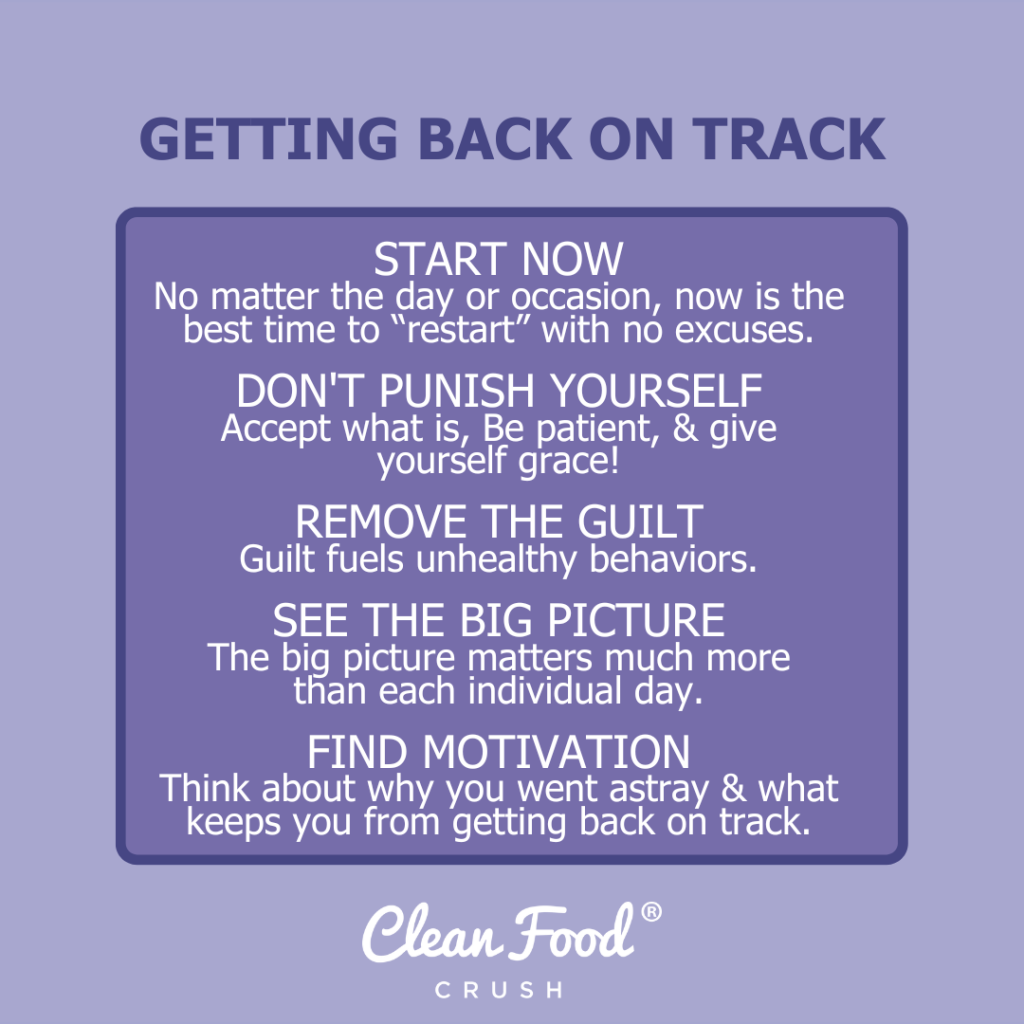
How to Get Back On Track With a Healthy Lifestyle
No matter what caused a derailing from your health track, there are things you can do to aid in bouncing back after a less healthy season in life.
Here Are Some Tips to Keep In Mind:
➡️ Start Now. It can be easy to develop an “all-or-nothing” mindset regarding your health, especially after a less-than-ideal season. You may think that since you’ve already “messed up,” you might as well wait until the end of the year (or after “such and such” event, or whatever it may be) to start fresh. However, this type of thinking can hold you back from making positive changes or progress, even when you’re more than capable of doing so.
No matter the day or occasion now is the best time to “restart” your healthy lifestyle, with no excuses. If you need more tips or encouragement, check out this article to read more about moving away from the all-or-nothing mindset.
➡️ Don’t Punish Yourself. It’s common to want to punish yourself for eating poorly, especially if those eating habits last longer than you expected. People are more susceptible to turning to fad diets, “cleanses,” and other health gimmicks during situations like this.
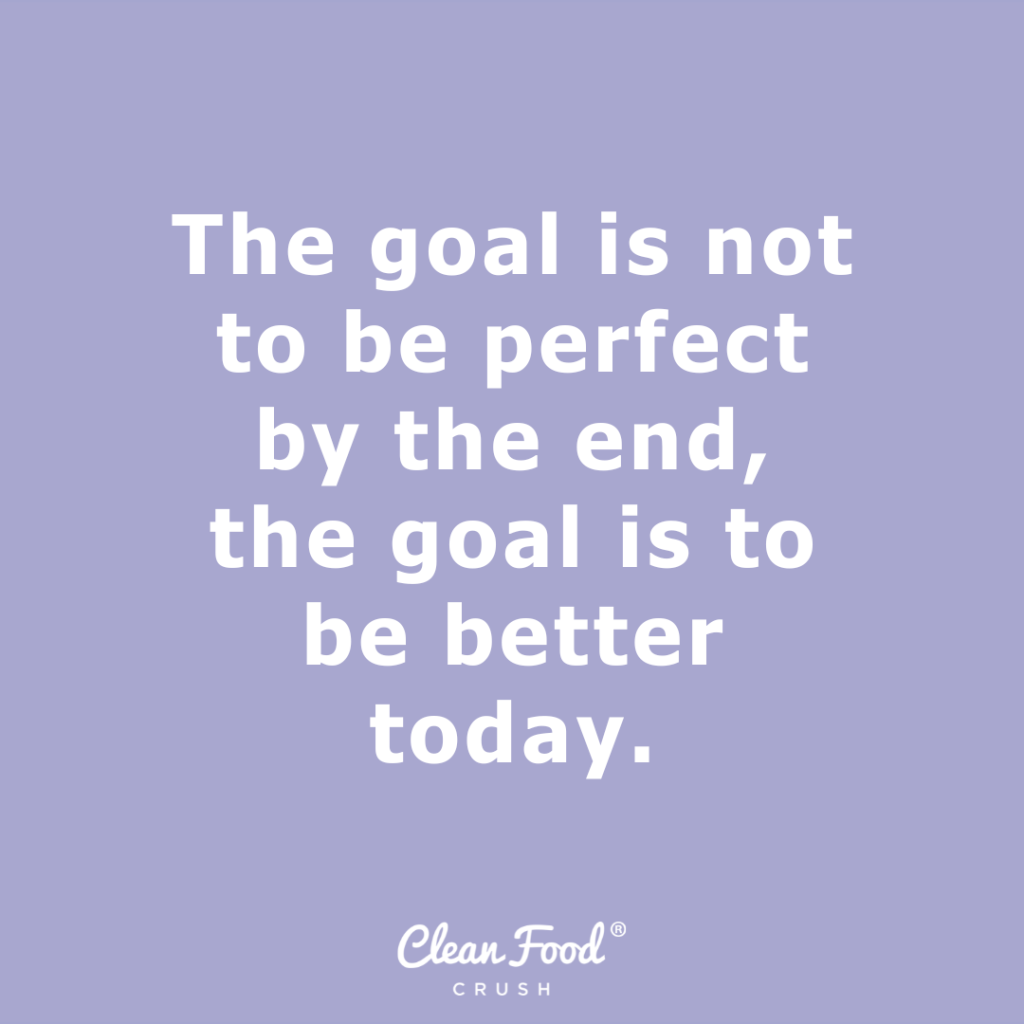
Unfortunately, these “quick fixes” usually end up doing more harm than good (not to mention potentially costing a lot of money). There is so much evidence showing that these types of restrictive diets don’t work in the long term. This also applies to strict exercise regimens that are not sustainable in the long run.
There’s never a need to punish yourself! Instead, accept what is and choose to believe that you are not a bad person for eating or behaving differently than you may have liked. So, no punishment is necessary (ever). Be patient and give yourself grace.
➡️ Remove the Guilt. Along with not punishing yourself also comes removing any guilt you may feel. Guilt tends to fuel more unhelpful behaviors. Instead of beating yourself up, simply acknowledge where you went astray and why that may be. Then, commit to making changes while also allowing yourself grace moving forward.
➡️ Look at the Big Picture. Even if it seems like you went astray for a long time, it’s likely that you’re eating habits weren’t as bad as you fear. Most people have three or more daily opportunities to make healthy food choices, and every decision counts. In addition, one weeklong vacation, for example, doesn’t ruin the entire month. The big picture matters much more than each individual day. So, keep your focus broad, not narrow.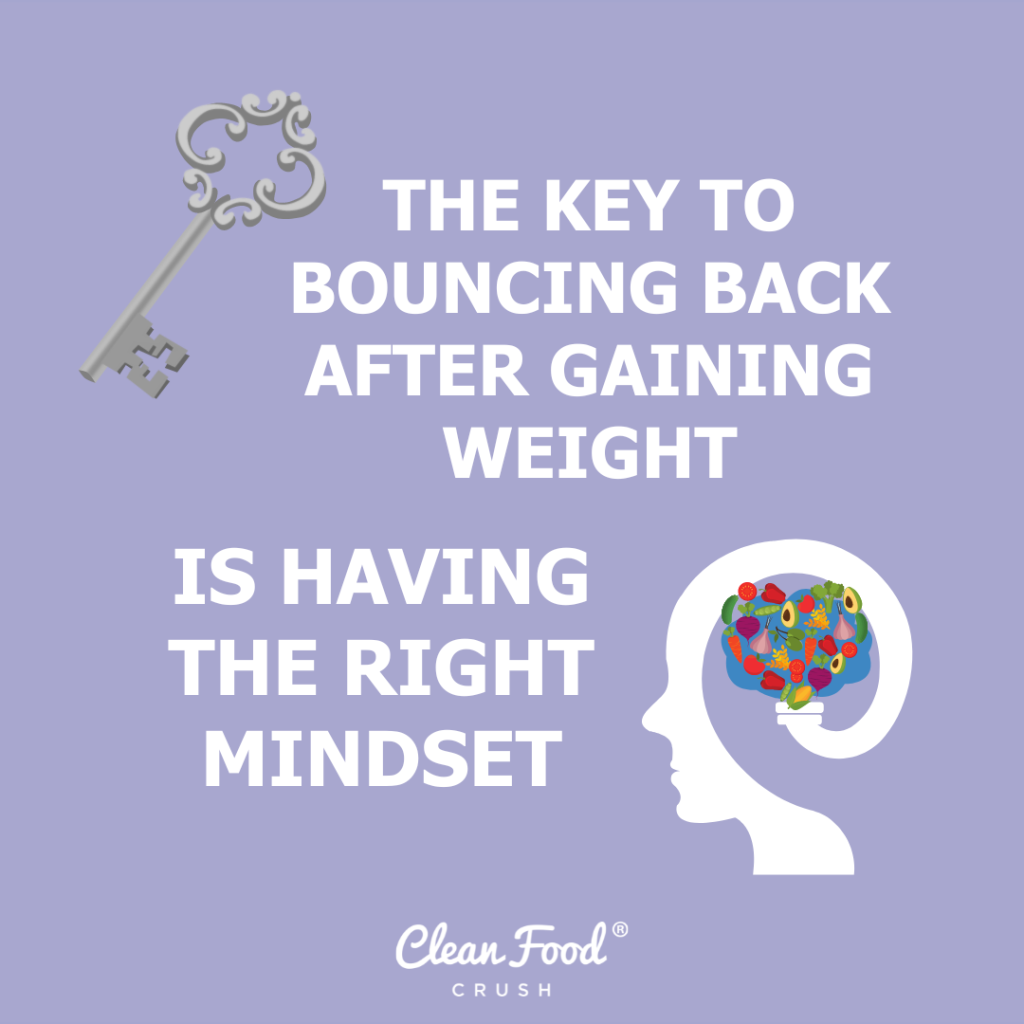
➡️ Find New Ways to be Motivated. There are many reasons why people stray from healthy eating in the first place, including temptation, social pressure, a desire to “treat yourself” (that may get out of hand), and an overall lack of motivation. If you’re not careful, these initial reasons can turn into long-term habits. The key here is to ask yourself why you went astray and what is keeping you from getting back on track.
This brings me to my next big point…
How to Stay Motivated With A Healthy Lifestyle
Sometimes, healthy eating can seem too difficult or even unrealistic. If you struggle with healthy eating or another health issue, such as weight loss or managing a chronic disease, you may not even know where to start. If you’ve tried before (as many people have), you may have gotten burned out and felt it was just too much work to maintain.
I want to encourage you right now that you ARE capable of following a healthy lifestyle. Sometimes all it takes is having the right motivations.
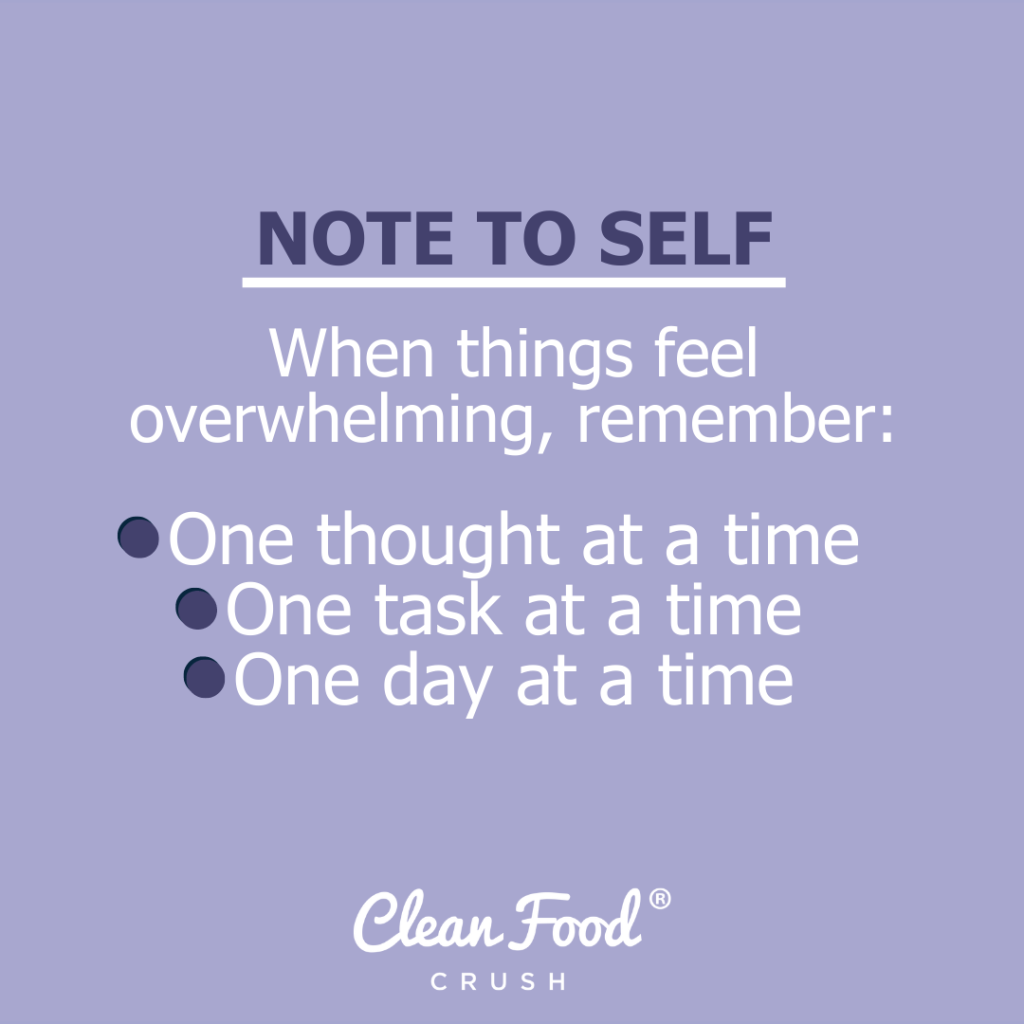
➡️ Don’t Compare Yourself. Here’s a truth: there is no one or “perfect” way to eat healthfully. A healthy lifestyle can take on a thousand different forms. This means you don’t need to compare yourself to how your friend, sibling, or coworker eats or lives. You can develop your own habits and regimen that may look very different from other people around you yet can still contribute to good health.
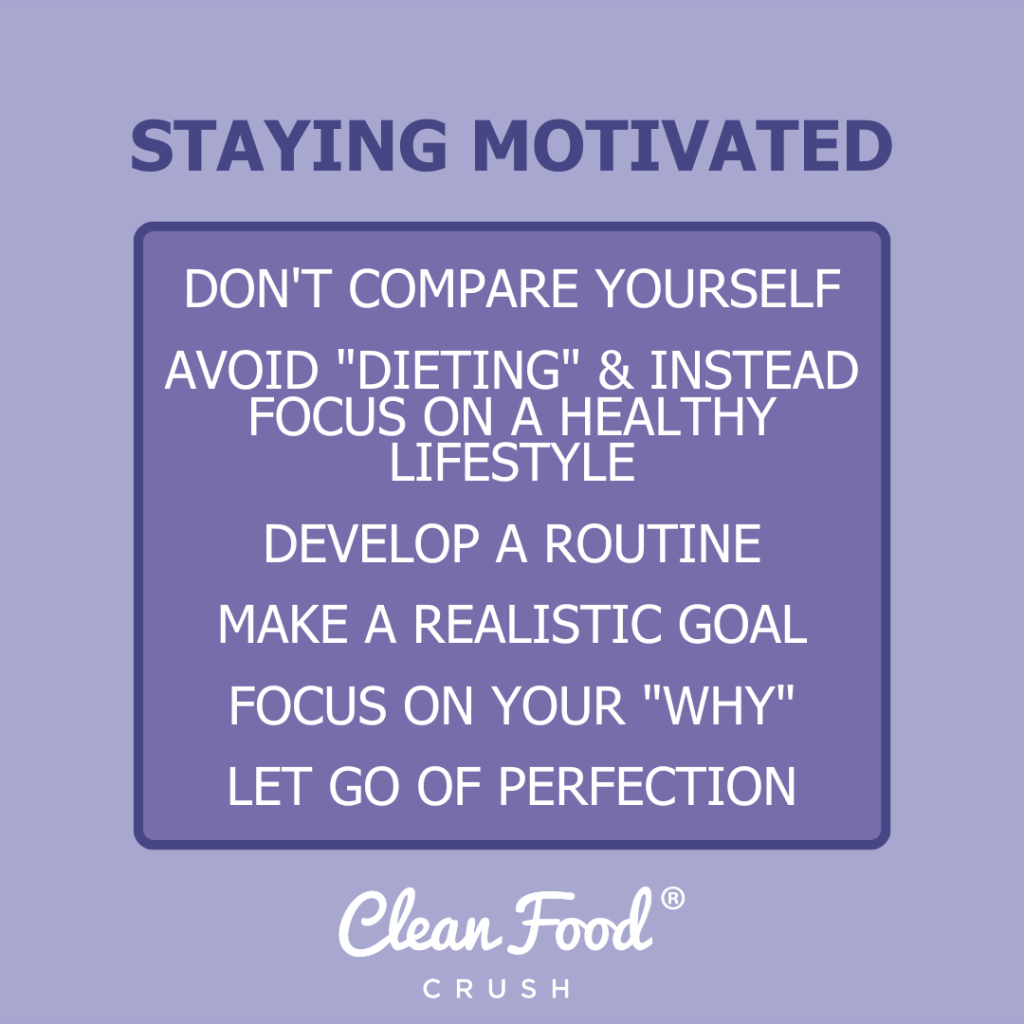
➡️ Let Go of the Word “Diet.” Even speaking (or thinking), the term “diet” can negatively impact your mental health. Yet if you think that dieting is the only way to follow a healthy lifestyle, you will continue to be influenced by the fads out there and be tempted to follow diet after diet, likely with little to no lasting success (remember when I said that diets don’t work?). Simply removing the word “diet” from your vocabulary can help you gain more motivation, as you will start to view healthy habits and lifestyle changes as a lifestyle (aka long term) and NOT as a diet (which is usually short term).
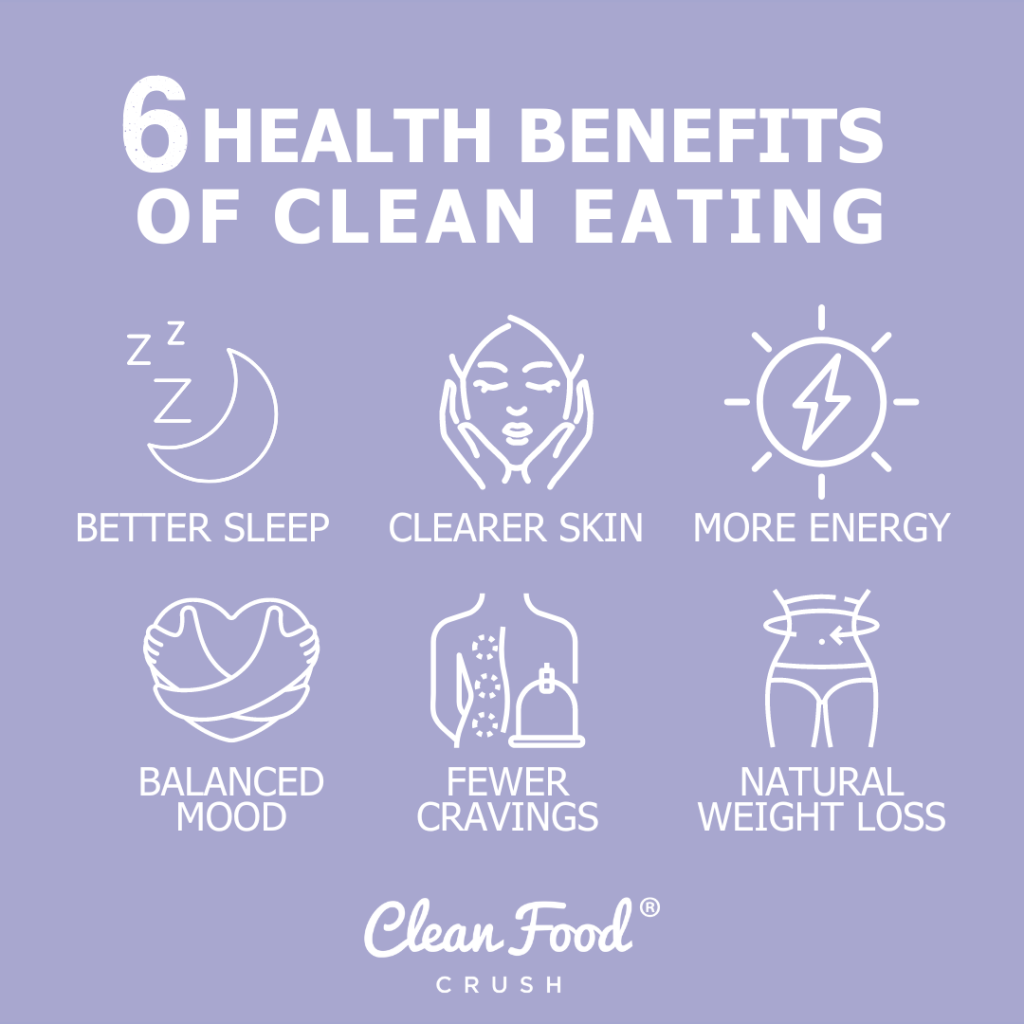
➡️ Develop a Routine. This is essential to have something to fall back on after you come off of a less healthy season (which is inevitable). Establishing a routine with healthy eating will help you feel like you have some control, even in situations that are out of your ordinary. You may not always stick to your routine 100% of the time, but even just starting your day with a healthy breakfast, going on an afternoon walk, or being sure to incorporate veggies with your dinner all make a difference.
I’ve got an abundance of resources to support you on my website, including hundreds of recipes, blog articles, pantry item suggestions, a meal prep guide, and much more.

➡️ Make it Realistic for You. This ties back to why most fad diets don’t work in the long run–they simply aren’t realistic. Following a healthy lifestyle MUST be practical for you to stay motivated. When it’s not realistic, feelings of burnout are most likely to develop. Because if it’s too difficult, it’s no wonder why it’s hard to maintain! So think about what habits you can develop that you can reasonably maintain (maybe it’s making a smoothie twice a week, adding more fiber to your meals via produce and whole grains, or cooking dinner at home at least 5 nights a week).
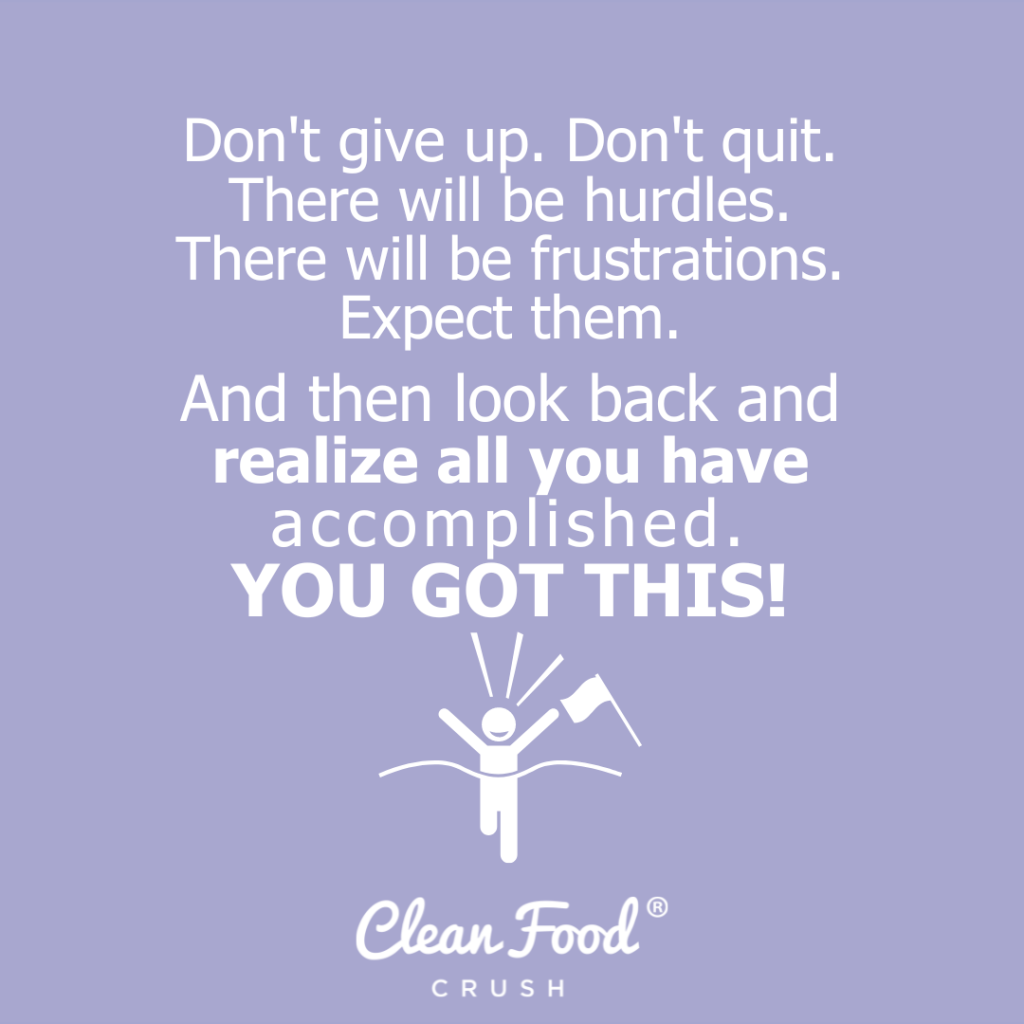
This is arguably just as important as making the lifestyle realistic for you. You also MUST know WHY it is that you want to be eating healthfully in the first place. Doing it because you feel like you “should” or because other people tell you to isn’t a good enough reason. You have to want it for yourself.
So really be thinking about why this matters to you. Do you care about preventing chronic diseases? Having more energy and stamina to be there for your kids? Looking and feeling better? Managing a current health condition? Whatever it is, focus on it over and over when you become tempted to stray.
And last but not least…
➡️ Let Go of Perfection. No one is perfect in anything. Every lifestyle should have room for celebrations, vacations, etc., without feeling like you “fell off the wagon.” Days of less-healthy eating are part of normal life, so they should be treated as such. Refuse to dwell upon these days and instead simply pick back up where you left off with the other healthy habits you’ve worked so hard to create.
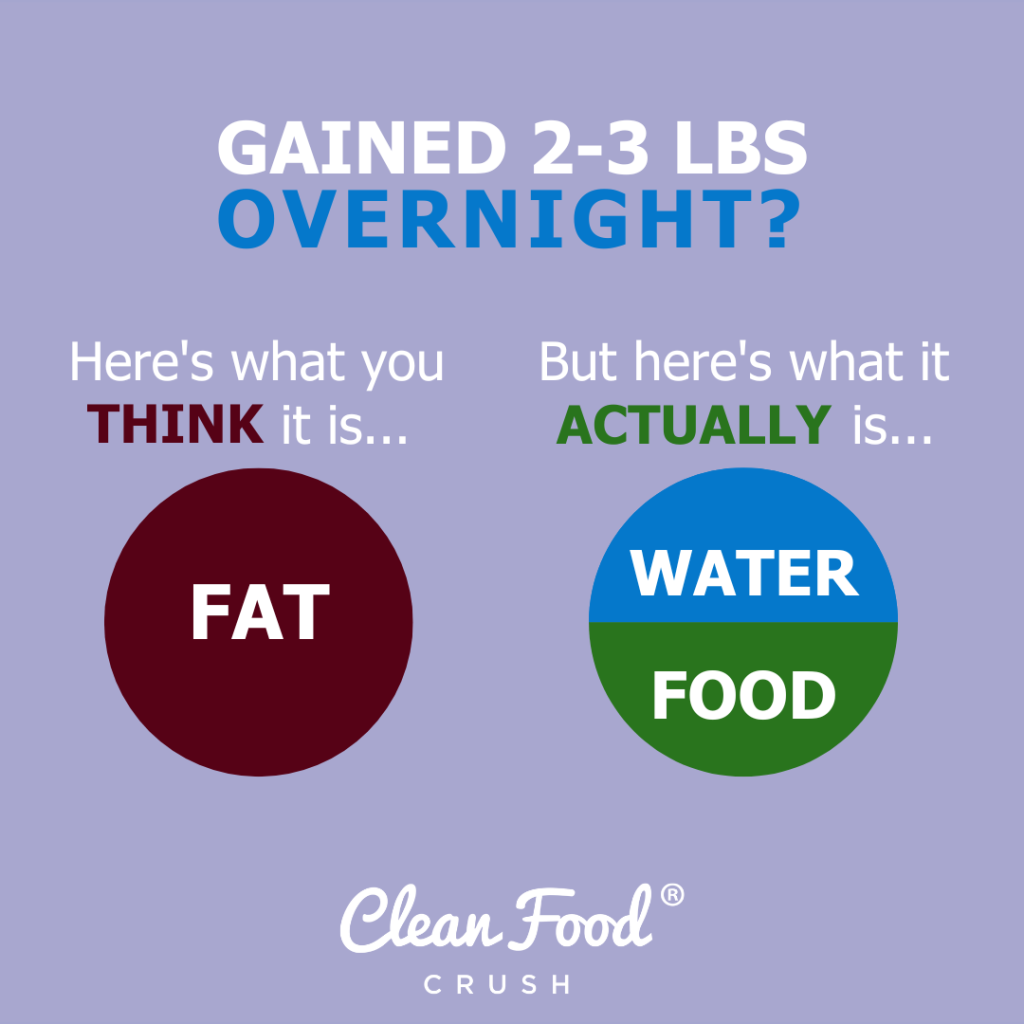
In Summary
Almost everyone will go through less-healthy seasons when it comes to eating habits and lifestyle choices. First, recognize that these seasons do not “ruin” your health, and it is never too late to start making changes. Refusing to punish yourself, letting go of guilt, and focusing on the big picture are just a few ways to help yourself “bounce back” after a less healthy season.
Next, you need to find ways to stay motivated by doing things like developing a routine, not comparing yourself to others, making your lifestyle realistic for you, and focusing on your reasons for wanting to live this way.

While the information in this article will help you learn to bounce back after less healthy eating, information alone isn’t enough to make a change.
If you require more support with eating healthy meals, answers to your questions, and accountability to your goals, we have created the 30 Day Clean Eating Challenge.
Within our program, you will learn how to eat clean meals on a regular basis without driving yourself nuts. Learn about how you can join our next 30 Day Clean Eating Challenge, and receive our current seasonal bonuses here.
Keep up the fantastic work, CRUSHers!





















